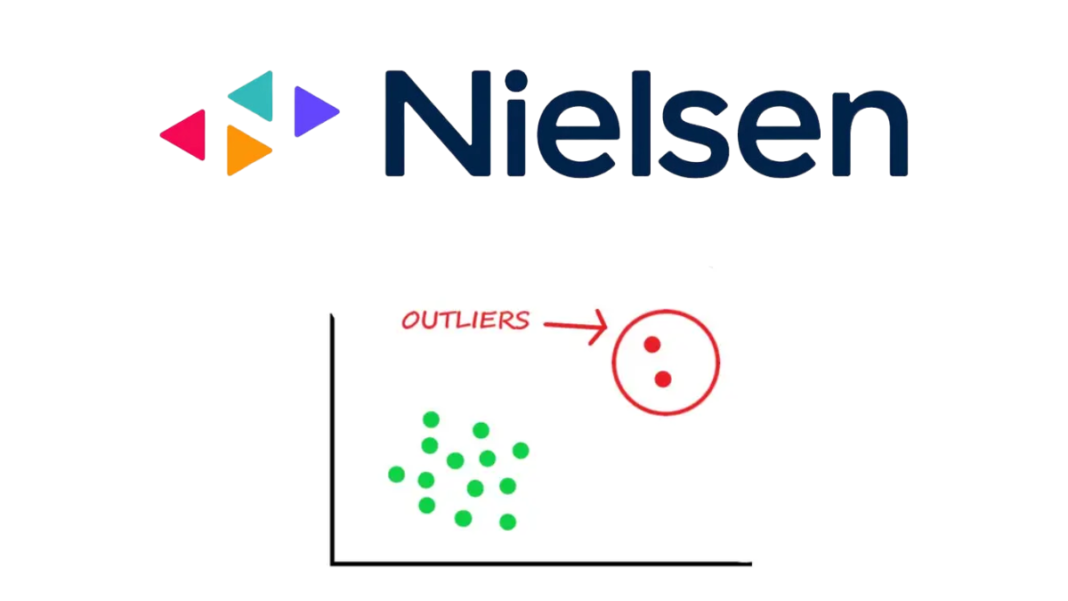In 2024, media outlets must find ways to be distinct and stand out, rejecting complacency and adopting a zeal to pioneer new frontiers. Alex Sherman, a media and entertainment reporter for CNBC, covers how media and telecommunications companies operate in this space, highlighting the opportunities and challenges the business presents.
Yet in the profession itself, he and his colleagues at CNBC are determining new approaches to reporting and creating distinct content that serves the marketplace and appeals to the audience. CNBC has traditionally consisted of a linear television network accessible through cable or NBCUniversal’s Peacock OTT streaming service, along with a website with articles and videos. The company is now moving into a new space by creating an outlet within its brand specifically focused on the intersection between sports and business. CNBC Sport will highlight valuations, advertising, media contracts and other aspects of the sports business through a variety of distribution methods.
“In a way, I think we are using CNBC Sport to plant a flag saying, ‘We want to take CNBC’s brand and business in a new direction,’ and sport just happens to be the first vertical we’re doing it with,” Sherman said, “but to me as big of a story as it is internally that we’re bulking up in sports coverage – it’s as big, if not a bigger story, that we are now emphasizing taking the CNBC business and moving it in a direction to try to resonate with younger people who are not simply watching CNBC-TV.”
Over the last several months, Sherman has balanced his daily responsibilities of reporting on salient movements in the marketplace and working on longform projects evaluating specific facets of change in the media business. A documentary he created pertaining to how ESPN is adapting to the diminished patronization of cable television has received hundreds of thousands of views online and more engagement on social media platforms as well.
“That’s sort of another facet to our business,” Sherman explained, “and now with the launch of CNBC Sport, that will be sort of yet another thing that I will be working to add content on and thinking about new forms of content that we can put on that landing page.”
On top of that, Sherman continuously strives to network with professionals and travels several times per year to visit sources that grant him information and knowledge about the business. Whether he is on the phone, appearing on television or composing a longform venture, he needs to remain nimble and flexible while analyzing the environment to determine the best ways to promulgate intellect. In the past, CNBC has effectuated such goals through traditional means of distribution on television and digital outlets, in person at industry conferences and through other special events. CNBC Sport will build off this momentum and function as a training ground for the greater business strategy of the company.
“This is such a natural fit for CNBC and its audience and its brand,” Sherman said. “It’s about making money, it’s about wealth, and also it has mainstream interest. It’s a lot easier and a lot more fun to write and report on sports and have people read and watch your work than it is on insurance, and I say that because one of the things I love about CNBC, even more than what I would say other business brands, is that some of CNBC’s product is entertainment.”
Rather than solely discussing business news with corporate vernacular and recondite concepts, CNBC infuses entertainment and levity within the scope of its coverage. In fact, it is part of the reason he wanted to work at CNBC altogether, especially after he had enjoyed success working at Bloomberg LP in the decade prior.
Even though Sherman majored in government studies at Harvard University, he always had a penchant for reporting. At the age of 15, he became a sports reporter for Kid Company Sports World and had the chance to conduct a 45-minute, one-on-one interview with 13-time NBA champion Bill Russell. During his time at Harvard, he was a sports editor for The Harvard Crimson and announced hockey and football games on the radio station, all of which granted him significant sports media experience. By the time he graduated though, Sherman decided to take a break from the field following the passing of his father.
“Part of my identity to sports journalism was him, and so I felt like I needed to take a break from it to figure out, ‘Is this what I want to do for a career myself or am I just doing this because my dad was interested in it and I’m sort of doing it for him?’” Sherman said. “So, I worked at a company called McMaster-Carr, which is an industrial supplies company, for two-and-a-half years to do something that was not sports journalism [and] figure out if that was what I wanted to do.”
Once Sherman came to the realization that he wanted to work in journalism, he attended the prestigious Medill School of Journalism at Northwestern University. As a graduate student, he took a business journalism course taught by Joe Mathewson, former reporter for The Wall Street Journal, in which an embedded internship coordinator presented an opportunity to work at Bloomberg. He and current CNBC colleague Sara Eisen both interned for the Bloomberg television platform and landed jobs with the company.
Sherman was not interested in becoming a television producer, but he took the job since it was offered to him and because he wanted to live in New York City around his friends. After compiling a demo reel and considering a move into local television, he eventually moved to media reporting where he covered a wide array of companies.
Sherman was later promoted to become the full-time technology, media and telecommunications reporter covering mergers and acquisitions. Jeffrey McCracken, the global managing editor overseeing coverage of M&A, initial public offerings and other deals, offered the position to Sherman and worked with him for most of the next four years. McCracken then became the managing editor for CNBC’s website, leading to Sherman joining the outlet seven months later.
Since arriving at the company, a recurring theme has been analyzing how sports rights have helped maintain the traditional television ecosystem. Comcast recently secured live game broadcasting rights for the NBA. In the weeks and months leading up to the deal, Sherman conversed with sources remaining aware of developments.
“If I feel like it’s either market-moving information or [it] kind of changes the dialogue around something, then I go with it,” Sherman said. “If I feel like it doesn’t really move the needle or we’ve kind of already reported it to some degree or others have already reported it, then I often don’t write a story and I’ll just wait until I feel like I’m making a real contribution.”
Comcast has sports broadcasting rights for several key properties in addition to the NFL and NBA, including the Olympic Games, Big Ten Conference and Premier League, while also expanding the breadth of its multiplatform reach in recent years. CNBC Sport will seek to strengthen the offerings and has an experienced team of reporters involved in the vertical, including Jessica Golden, Scott Wapner and Michael Ozanian.
The platform prominently features a video player that will showcase original CNBC Sport videos that include interviews with business luminaries and explorations of key industry questions. Sherman perceives this to be an ostensible competitive advantage, along with the connections established under the aegis of credibility, eminence and longevity. Under the new vertical, he will be hosting a podcast that is currently in development, further broadening the reach of his reporting acumen.
“It’s not that uncommon to see the top athletes – Kevin Durant or LeBron James or whoever – appear on CNBC and [have] them talk about their business. Steph Curry, Charles Barkley – they’re on all the time,” Sherman articulated. “You don’t hear from these people talk about sports business in sort of any other form but CNBC, so having access to them and then including this new podcast, you can easily see being able to do interviews from a podcast standpoint that you’re not getting anywhere else, even though there are some sports business podcasts that already exist.”
Sherman presumes that the company could consider developing either a sports business show or segment that can air with some of the live sports on Comcast networks. CNBC is airing games throughout the 2024 Olympic Games and occasionally airs sporting events of its own, something that could compile a full CNBC Sports package.
Sherman recalled a recent conversation he had with Luis Silberwasser, the chairman and chief executive officer of Warner Bros. Discovery’s TNT Sports division, in which they both concurred they were lucky to be working in sports. After all, the industry is benefitting from the appeal of live broadcasts and surrounding discussion and analysis.
“While it’s so much doom and gloom for a lot of these legacy media companies, on the sports side, it’s like boom time,” Sherman said, “and you see the valuation of the franchises themselves and how they’re exploding at the major sports levels, and they’re bringing in billionaire investors or now private equity firms in the NFL.”
With most of the major media rights deals complete for the year, Sherman is focusing on what he calls an “existential story” regarding the dichotomy between legacy media companies and technology firms. Apple, Google, Netflix and Amazon have all made plays in sports media, closing deals with professional sports leagues for broadcast rights both domestically and abroad through a variety of modes.
Even though Sherman has been in the media business for many years, he remains energized by the reporting process and watching it evolve concurrent with changes in the greater consumption landscape. Akin to an athlete, he is trying to win every day and is motivated by the competitive aspects of the job. With the CNBC Sport vertical and a burgeoning, multiplatform reporting space meeting the preferences of consumers, Sherman is optimistic about the future of the business as it moves from a hypothetical to a reality with boundless potential.
“This idea of building a vertical within CNBC and getting a sponsor for it, building events around it, using current CNBC talent to feed into it, building a podcast, and I honestly don’t even know exactly some of the other content that may derive from this,” Sherman said. “…This package of material that is not bound by the cable bundle is essential for CNBC to survive and flourish with a younger audience that is not tied to the cable bundle.”
Derek Futterman is an associate editor and sports media reporter for Barrett Media. Additionally, he has worked in a broad array of roles in multimedia production – including on live game broadcasts and audiovisual platforms – and in digital content development and management. He previously interned for Paramount within Showtime Networks, wrote for the Long Island Herald and served as lead sports producer at NY2C. To get in touch, email Derek@BarrettMedia.com or find him on X @derekfutterman.






